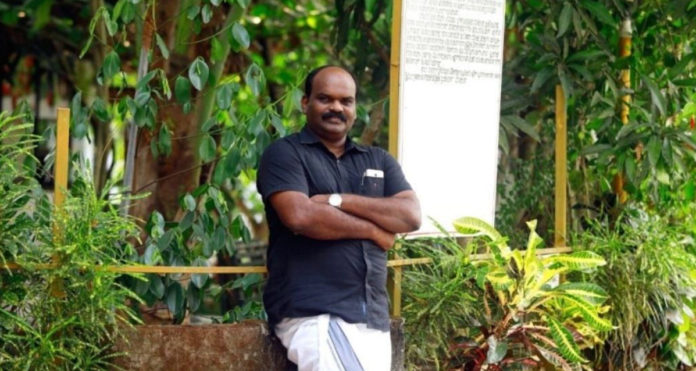
Engineer Left His High Paying Job in Dubai to Build 4800 Species Biodiversity Park
Date:

Share post:
Several jungles have been cut down in the name of progress by corporations and governments alike, hurting tribal populations and local fauna and flora around the country. However, one engineer from Kerala stands out. Engineer Nellikkuzhi Kuriakkose Kurian quit his Dubai-based company to establish Mango Meadows Agriculture PleasureLand, an artificial ecological park and guesthouse in Ayamkudy, a village in the state’s Kottayam district, with money from his pocket.

This biodiversity park, known as the Mango Meadows Agriculture Pleasure Land, has become a famous place for travelers to revitalize in the middle of nature, with no pollution in its surroundings, for the past three years.
Nellikkuzi, a Kaipuzha native, began his career in Mumbai as a building site supervisor. He travelled to Saudi Arabia as a project engineer with a construction firm in 1995 when he was 26 years old. He relocated to Dubai three years later to work in the aluminum fabricating industry.
“I made a good living and ultimately used my funds to start my own business.” “I was visiting a location one day when I stumbled across a man-made oasis in the middle of the desert,” remembers the 50-year-old. Nellikkuzi never intended to establish a park for touristic objectives when he started. “I just wanted to do my part to help the environment,” he says.
Nellikkuzi couldn’t shake the vision of what he’d witnessed. “It left a deep imprint on my mind, and I realised that, given the fertile soil and ample rainfall, many more green zones could be established in India,” he says.

In 2002, Nellikkuzi purchased a 5-acre barren property in Ayamkudy village to pursue the project during a visit to India. “There were four coconut trees on the property, and the rest was desolate.” He claims that farmers in the area believed the ground was barren and that nothing could grow there,” he claims.
He began investing money in native tree planting and visited to remote parts of the country. He gradually acquired neighbouring farmland in portions over the years.
However, as his crops grew, Nellikkuzi began to face a problem. “Maintaining the plants in India was a challenging task because I resided in Dubai.” Every time I went to the land, I noticed that I had lost a lot of trees. As a result, I hired people to water and manage the plantation,” he explains.
Nellikkuzi had bought 30 acres of property about a decade later. “It had become impossible to keep up with the care of such a huge property by that time.” “In 2009, I decided to give up my business and devote my savings and my life to forest development,” he says.
Today, the lush dwelling is home to 4 lakh trees, 4,800 tropical plants, 85 vegetable species, and 145 fruit trees, including plum, cherry, Israel orange, and other variations. “The biodiversity park has all possible kinds from the south and other areas of India,” he explains, citing rhododendron arboretum, which grows below 5 degrees Celsius, and date palm, which grows at 45 to 50 degrees Celsius.

Other uncommon plant and tree species found in the park include the sacred Aeglemarmelos, which is used for therapeutic reasons. “I’ve also planted rare species like mangrove apple and ficusalii, which is on the verge of extinction and other variations like calabash or beggar’s bow, rudraksha, and others,” he says.
Nellikkuzi claims that not all of the types he plants are edible. “However, my main goal is to save as many plant species as possible from extinction,” he continues.
The oasis also has four ponds with a total of 64 fish species. “The ponds range from 50 to 150 square feet and are connected by tunnels that allow fish to swim between them. This also assures adequate water retention in all ponds during the summer,” he continues. According to Nellikkuzi, these ponds were built to provide villagers with jobs. “Interacting with the locals made me discover that many of them were supplying fish at lower prices, which had doubled by the time it reached the market.”
“I felt that the fishermen’s efforts were being underestimated while the middlemen were reaping a large portion of the earnings,” he continues. As a result, I built the ponds to allow fishermen to catch more fish with less work and make more money. There are no middlemen anymore, and the fisherman gets their just benefits.” Nellikkuzi believes that his ponds let 300 fisherman earn more money and live a happier life.
“My work delighted the Gujarat Tourism and Fisheries Minister during his recent trip, and he encouraged me to recreate such a biodiversity theme park,” Nellikkuzi said of his intentions. As a result, the job has commenced.”
Nellikkuzi believes that his biodiversity park will help future generations grasp the country’s natural heritage. “Many kids come to the park, but they have no idea where their food comes from.” They are conscious of the delicacy on their tray but are less aware of the process that it goes through before it reaches the plate. “I intend to collaborate closely with them to preserve the biodiversity legacy,” he adds.
